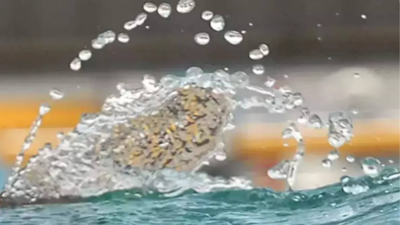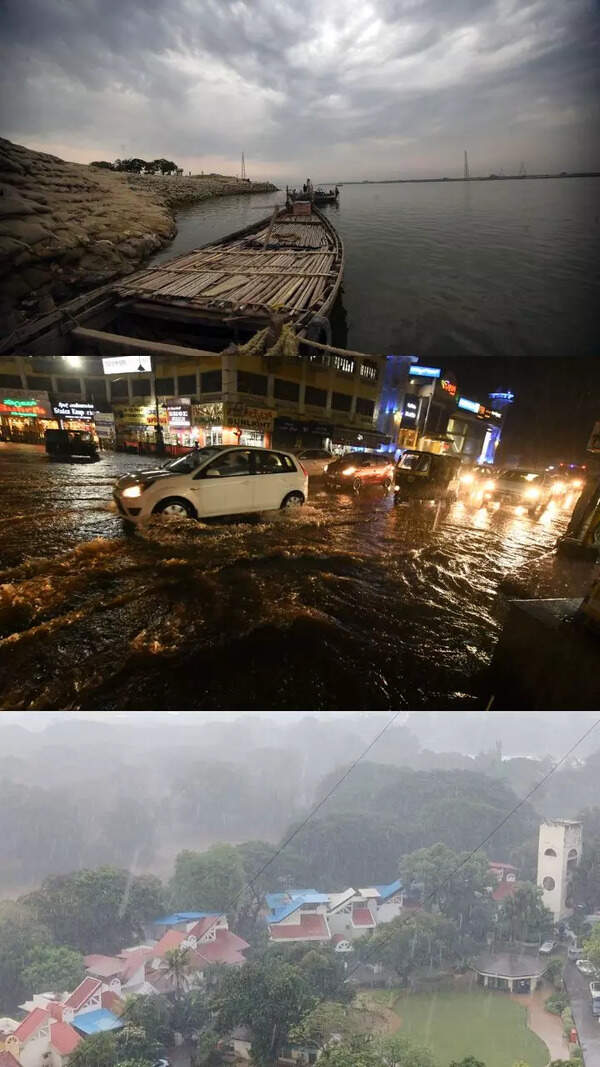- News
- City News
- gurgaon News
- Saving water: 300 acres of agricultural land saw shift from paddy to other crops in 1 year
Trending Topics
Saving water: 300 acres of agricultural land saw shift from paddy to other crops in 1 year

Farmers have shifted from paddy cultivation to other crops that require less water on over 300 acres of agricultural land under the crop diversification programme in the district. Those who opted to cultivate other crops have altogether been paid Rs 22 lakh in incentives by the state government.
GURGAON: Farmers have shifted from paddy cultivation to other crops that require less water on over 300 acres of agricultural land under the crop diversification programme in the district. Those who opted to cultivate other crops have altogether been paid Rs 22 lakh in incentives by the state government.
Haryana launched the ‘Mera Pani Meri Virasat’ scheme in May 2020 to encourage farmers to diversify beyond paddy, offering them Rs 7,000 per acre. According to officials, continuous paddy cultivation has led to depletion of groundwater across the state.
Paddy is not a crop natural to this region, and growing 1kg of rice requires an input of 4,000 to 5,000 litres of water, according to officials from the district administration.
The main idea is to shift farmers from paddy to other crops to avoid exploitation of groundwater, officials said. In the last one year, paddy farmers planted other crops in 314 acres of land.
At present, a total of 11,482 acres are under paddy cultivation here — 4,760 acres in Sohna block, 2,620 acres in Pataudi, 2,680 acres in Gurgaon and 1422 acres in Farrukhnagar. “In view of depleting groundwater, farmers are encouraged to opt for crop diversification. In the last one year, farmers were paid compensation of around Rs 22 lakh for this,” deputy commissioner Nishant Yadav said.
The groundwater level in Gurgaon block is 36.3 metres below sea level, while it is 22m in Farrukhnagar, 38.4m in Pataudi and 25.6m in Sohna.
Haryana is a water deficit state. The state needs 34 million acre feet (MAF) of water, but has just 20 MAF available, due to which agriculture has taken a big hit. The government is focusing on reducing the deficit by increasing use of recycled water, officials said.
Southern Haryana, according to officials, is considered conducive for growing pulses and cereals. “We are urging farmers to opt for less water-consuming crops,” an official said.
Haryana launched the ‘Mera Pani Meri Virasat’ scheme in May 2020 to encourage farmers to diversify beyond paddy, offering them Rs 7,000 per acre. According to officials, continuous paddy cultivation has led to depletion of groundwater across the state.
Paddy is not a crop natural to this region, and growing 1kg of rice requires an input of 4,000 to 5,000 litres of water, according to officials from the district administration.
The main idea is to shift farmers from paddy to other crops to avoid exploitation of groundwater, officials said. In the last one year, paddy farmers planted other crops in 314 acres of land.
At present, a total of 11,482 acres are under paddy cultivation here — 4,760 acres in Sohna block, 2,620 acres in Pataudi, 2,680 acres in Gurgaon and 1422 acres in Farrukhnagar. “In view of depleting groundwater, farmers are encouraged to opt for crop diversification. In the last one year, farmers were paid compensation of around Rs 22 lakh for this,” deputy commissioner Nishant Yadav said.
The groundwater level in Gurgaon block is 36.3 metres below sea level, while it is 22m in Farrukhnagar, 38.4m in Pataudi and 25.6m in Sohna.
Haryana is a water deficit state. The state needs 34 million acre feet (MAF) of water, but has just 20 MAF available, due to which agriculture has taken a big hit. The government is focusing on reducing the deficit by increasing use of recycled water, officials said.
Southern Haryana, according to officials, is considered conducive for growing pulses and cereals. “We are urging farmers to opt for less water-consuming crops,” an official said.
Start a Conversation
FOLLOW US ON SOCIAL MEDIA
FacebookTwitterInstagramKOO APPYOUTUBE










